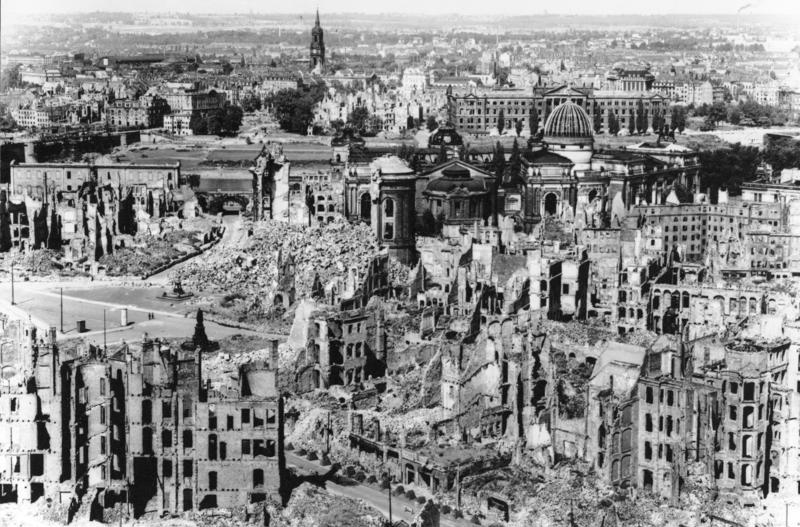 |
| Dresden on February 15, 1945 |
"At that time, they were teaching that there was absolutely no difference between anybody. They may be teaching that still."
Thursday, July 19, 2012
No Need to Worry: Situational Irony, Chapter 6
"'You needn't to worry about bombs, by the way. Dresden is an open city. It is undefended, and contains no war industries or troop concentrations of any importance'" (Vonnegut 146).
When the British prisoners of war attempted to comfort Billy Pilgrim and the other pitiful young Americans about to be shipped to Dresden, this example of situational irony struck a chord for me. The people of Dresden were refugees and innocent civilians, working in factories and going to zoos and museums as if war wasn't raging in their continent. No one expected an air raid. The citizens would take to their shallow bomb shelters as if playing pretend, as they had never been threatened. So, for the Americans going to work in Dresden, the city appeared to be a peaceful, culture-rich, and a beautiful safe haven full of pleasant potato-eating people. Situational irony became prominent as the citizens go on living and the Americans go on working, not knowing of their coming deaths. Vonnegut holds the audience in dread of the firebombing, of which they have known about since Chapter 1, and sets up the gorgeous city during the anticipating course of Chapter 6.
Subscribe to:
Post Comments (Atom)
No comments:
Post a Comment